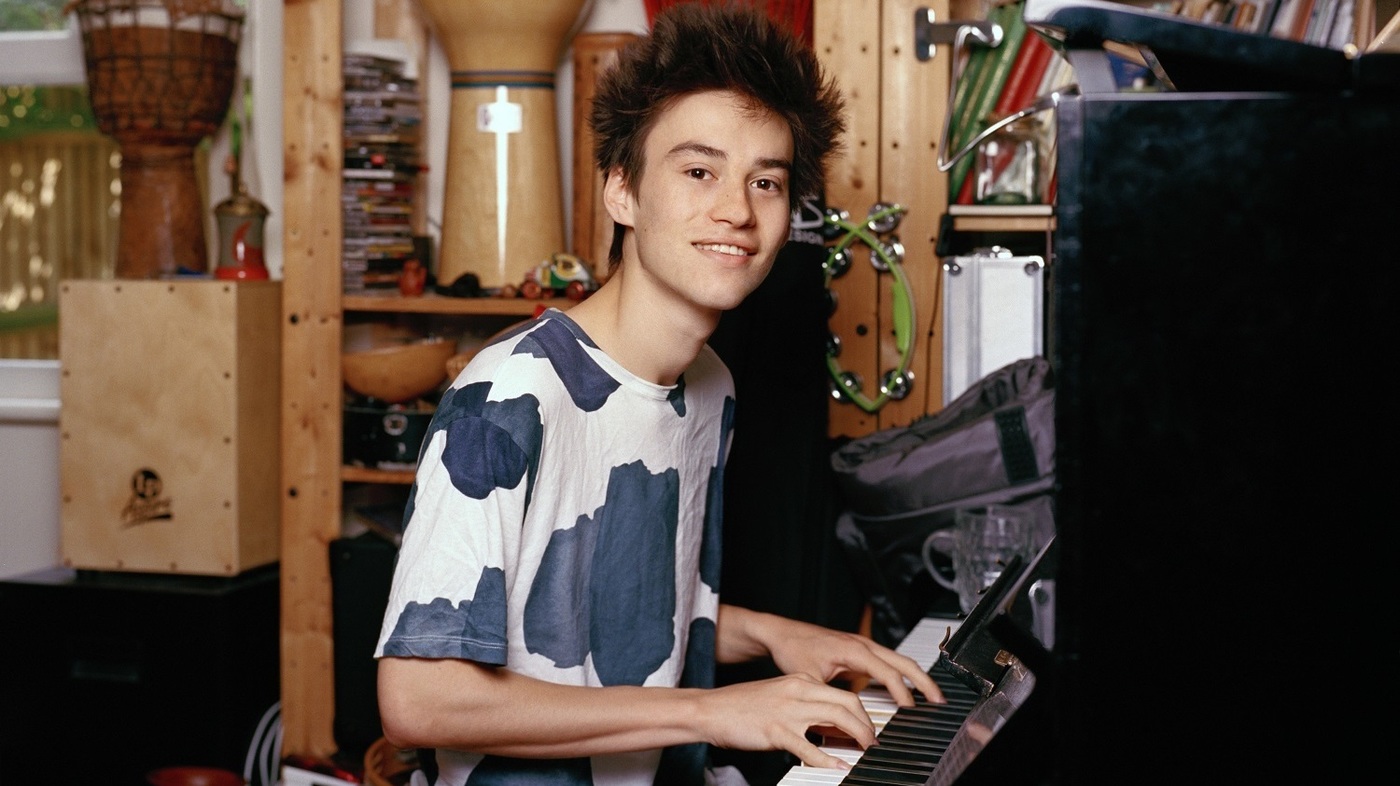REVIEW: Jacob Coller @ The Royale 3/1
By Chris Bunting
On March 3rd, musical wunderkind Jacob Collier graced the stage of Royale in Boston while touring for his album Djesse Vol 1. Collier explained the album is one of four based around a titular character that represents “the inner child who creates freely”. His performance embodied that concept wonderfully.
Collier rose to fame as a one-man band, but this time shared the stage with a trio of multi-instrumentalist virtuosos — Christian Euman (percussion), Robin Mullarkey (bass, keys, vocals), and Moro (keys, vocals, guitar, percussion) — who shared his technical skill and deft-defying sensibilities. The band was in perpetual motion for almost all of the two-hour set, with Collier constantly oscillating between keys, drums, bass and guitars all while singing melodies and totally vibing with the crowd. It was spectacular to see him shift between instruments, effortlessly sliding into the spaces between and within the complex grooves laid down by his band mates. He would complement and at times transform the rhythm and harmony with almost mind-numbing precision and creativity. One point saw him dancing across the stage mid-melody to grab a tambourine and perform a wildly crunchy polyrhythm. He boogied his way back across the stage to slam dunk into a cymbal, singing and grinning throughout without missing a beat. The band was carefully attuned to him and to each other throughout the show, providing a nearly gapless symbiosis of musicality.
Mullarky in particular would switch from bass to keyboard and back at a moment’s notice, making space on the low end for when Collier loosed his musical mind on the ultra-thin electric upright bass at center stage. Meanwhile, Moro and Euman were in constant conversation as well, adding and subtracting everything from cowbells to synthesizer harmonies based on how the songs flowed. The ambience was topped off by sound-responsive light poles that glittered and shone in time with the beat. The group reshaped both Collier’s solo work and the orchestral arrangements from DJesse into entirely unique experiences, while maintaining what made musical and emotional roller coaster rides out of the originals. Collier’s signature self-harmonizing vocoder keyboard (designed with help from an MIT grad) still made quite a contribution despite the quartet setting. Moro used it extensively at the start before relinquishing it to Collier. Thanks to a stellar audio team, he could sing into the vocoder (harmonizing his voice to the chord he would play à la talk box) or earpiece mic at anytime, freeing himself to sing from anywhere and everywhere on stage. While most of the tunes featured funky breaks, shifts, and polyrhythms that seated the band comfortably on the edge of musical insanity, there were some lovely acoustic moments as well. In particular, Collier’s solo performance of Stevie Wonder’s “You and I” on the grand piano and Moro’s Portuguese vocal/guitar intro to “Hajanga” served to break up the ultra-dense intensity that marks Collier’s style.
Amidst all this, Collier still somehow had brain space left to interact with the crowd, guiding their claps and voices as he slid around the stage in colorful socks. From the start of the show, he was conducting the audience to help him build polyrhythms and would regularly dance around center stage between instruments to whack cymbals and keep the crowd engaged. They closed the show with George Gershwin’s “Fascinating Rhythm,” complete with the self-harmonized a cappella lines of Collier’s early Youtube fame. After a flaming swing/neo-soul rendition, the band disappeared to cheers. When they returned, the quartet sat cross-legged on the floor equipped with a small acoustic guitar and a wood block for an almost-a cappella version of the Beach Boys’ “In My Room,” a Jacob Collier standard. Stage crew was soon army crawling their way up the stage to pass over a tiny acoustic bass and a melodica to fill out the arrangement, which at that point had swelled to include harmonies from much of the crowd. At the close of the song, only Collier remained, posting up by the vocoder for a sing along of Bill Withers’ “Lean on Me” that transitioned into a call and response between Collier and the crowd. Recognizing that music students had come out in droves, Collier “called” complex melody lines and polyrhythmic claps, to which the audience responded in kind. There is a particular joy that comes from expressing yourself musically, when you can put aside fear and uncertainty to simply create what you feel. Jacob Collier radiates this energy, and in those final moments invited us to partake in it with him. For a man so wildly talented, whose music is at times almost frighteningly complex, his philosophy of free expression as a means to experience and share joy is beautifully simple.
